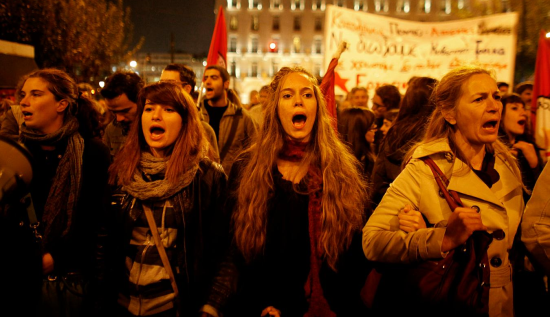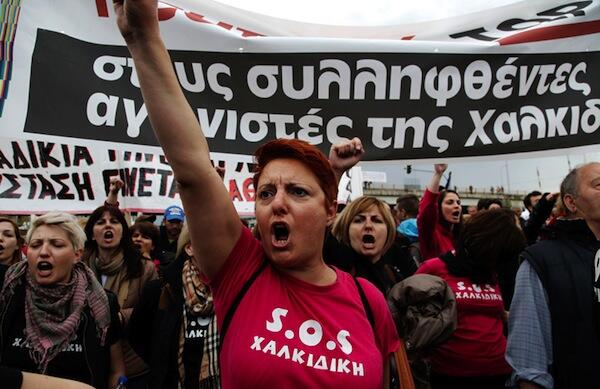
For three days the Committee for the Abolition of Third World Debt, CADTM, is hosting its summer university. The theme is that the Debt economy needs to be investigated, as neoliberal leaders assert that debt governs society as a whole, proving that debt has become a key tool of the neoliberal economy. The goal of the conference is to look at multiple phenomena through the prism of the debt economy.
The conference is organized around several “itineraries”: debt in the South, debt in the North, environmental debt, audit, and feminist fights.
The first day started with a plenary session entitled “ La dette dans tous ses etats” (Debt in all its states), a play on words suggesting the multifaceted aspect of this neoliberal instrument.
The first speaker gave a snapshot of the cynicism of the situation that demands the scam that allowed the financial crisis of the patriarchal neoliberal to become the public debt crisis and the responsibility of the public. They play, we pay. In Europe, the offensive started seven years ago, taking aim at the social rights brought about by decades of social struggles. The recent financial reform Projet Barnier that was formed at the European Commission was influenced and largely designed by over 1000 financial lobbyists with a budget of 300 Million Euros.
The next speakers revealed the intricacy of finance and domination of the oligarchs in the form of debt in Ukraine that led to the current crisis that is still killing people.
After that, Gilbert Lieben, the Secretary General of the Centrale Générale des Services Publics, a Belgian union for public services employees, gave an overview of the work that unions have to do to debunk the traps of the debt system. He reminded the audience that, at first, the unions did not realize the importance of the formation of the concept of debt in social struggles.
Then, Olivier de Schutter, former United Nations Special Rapporteur on the right to food, exposed the connection between debt and farming as small farmers have been under siege since the agriculture sector has been open to free market deregulation.
CADTM spokesperson Eric Toussaint set the stage of the past and future stakes for the South in the debt economy. After listing several positive initiatives such as in Ecuador, Venezuela, Bolivia, and, to some extent, Argentina, he warned the audience of the possible devastating consequences for the South of a change by the FEDS of the interest rates in this intricate global debt system. He emphasized that alternative are not only possible but necessary if we want to break all forms of oppressions.
Amina Amzil, from Attac Morocco, delineated the feminist struggle. She explained the double burden on women in Morocco, where the debt economy devours 78% of the GDP. In Morocco between reductions in public social services and in public employment, women are particularly impacted. Austerity policies increase and intensify precariousness for women who are more likely to be illiterate, dependent and victims of domestic violence. Debt is another means of oppression for women.
The CADTM has been involved in organizing citizen audit of public debts everywhere in the world. Its latest involvement in the audit of the Greek debt under the aegis of Zoe Kostantopoulou, the President of the Greek Parliament, has brought attention to the importance of a transparent process in public policy.
The afternoon workshop, “Arming women against all forms of austerity”, addressed this lack of transparency as central to the exploitation of women. The workshop invited us to organize more effectively. As Sonia Mitralias said, we need new ways to imagine a different future.
Debt is gendered and the response must integrate women in their entirety and diversity. The group created a five-module educational kit, from austerity to what to do. One of the modules, “Exploitation of women knows no crisis”, helps participants understand that the few gains in women’s rights are again under attack. The audience was large and diverse and passionate. I met women from Cameroon, Tunisia, Morocco, and elsewhere.
Women in Belgium organized a feminist audit of the debt in which they account the number of services women provide for free, from reproduction and care work to cheap labor. Their conclusion is simple: the state incurs the huge debt, not the women! They called their project “La Facture” (the invoice, or the bill). The State plays, the women pay and pay and pay.
The fight against the debt economy is transnational and gendered.
(Photo Credit 1: CADTM)

